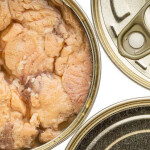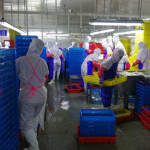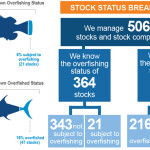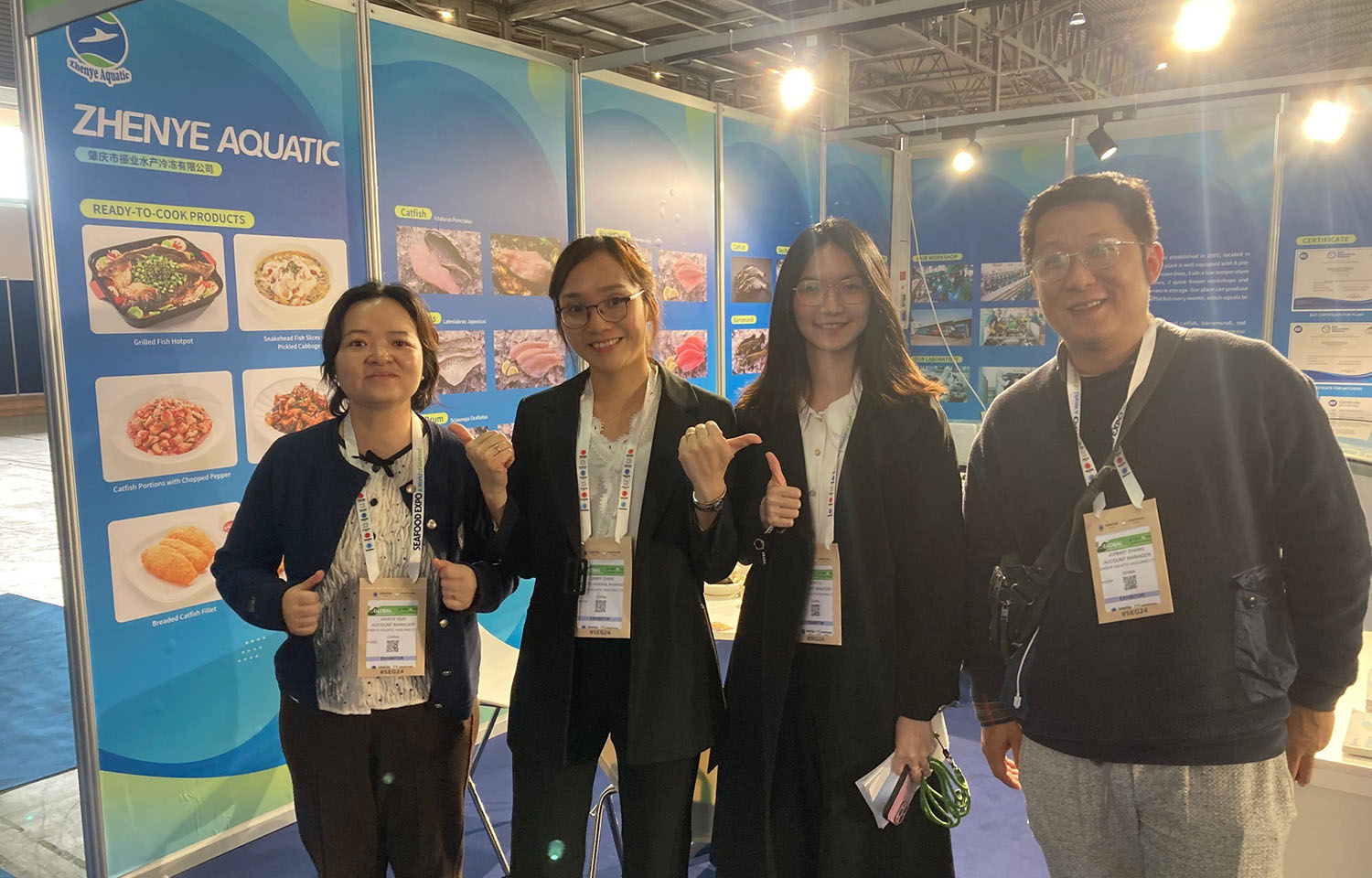Zhenye Aquatic Deputy General Manager Jimmy Chan isn’t worried about her competition.
“China is the best processor in the world for seafood,” Chan told SeafoodSource at the 2024 Seafood Expo Global in Barcelona, Spain, on 23 April. “We have been doing it for a long time, and we have perfected all of our processes. We are professional and have hard-working, clever employees with good supervision. Our quality control staff is also very good; they are very responsible. Recently, there is more competition from every country, but I think China remains the best.”
Zhenye Aquatic was established in 2005 in Huilong, Guangdong, China, thanks to a CNY 115 million (USD 15.9 million, EUR 14.9 million) investment. It has eight production lines, five individual quick-freezing lines, three ultra-low-temperature liquid nitrogen quick-frozen lines, and 5,400 meters of low-temperature storage. Its capacity is around 3,600 metric tons (MT) of seafood monthly, or around 68 containers.
It processes a range of both freshwater and saltwater aquaculture products, primarily sourced from contracted farmers, including channel catfish, tilapia, Japanese spotted sea bass, red drum, barramundi, snakehead, roche shrimp, and catfish. It has Best Aquaculture Practices certification, as well as BRC, QS(SC), ISO 9001:2000, HACCP, and Kosher certifications.
Around 60 percent of the company’s sales are to U.S. customers, including its largest – Aldi US – with domestic sales accounting for most of the remainder, including several well-known domestic restaurant chains.
In 2023, the company’s leadership committed to a diversification strategy, partially in response to growing trade barriers arising from the Sino-U.S. trade war, which was initiated under the administration of former U.S. President Donald Trump and which has been continued by his successor, Joe Biden.
“We haven't seen any decline in business because of that; it has been steady. But, we are now working very hard to try to have more business [in Europe],” Chan said. “We are trying for Aldi in Europe, other supermarkets, and also distributors because Europe is a very large market, and we need to diversify.”
Chan said Zhenye Aquatic doesn’t spend time thinking about things it can’t control, like international trade policy.
“We cannot worry about this. We are just a small potato. What we can do is just to have the best quality and also stable supply. We can work Saturdays and ensure all our products are tested three times for quality. This is how we can influence the choice of the buyer,” Chan said.
Chan acknowledged, though, that as a result of the trade war, some processing is moving to other places, with Southeast Asia making a push to take on some of the processing work previously performed by Chinese firms.
Chan said she wasn’t worried about that.
“There will always be competition from every country; this is normal business,” Chan said. “We like it. We like the challenge.”
However, the company is more internally focused, always trying to improve itself, according to Chan.
“Our workers feel very happy to work for us because the salary is good and we pay on time, and it’s fulfilling,” she said. “We are just like a family, not like a company.”
Zhenye Aquatic has also implemented an extensive quality control system for its contracted farmers, offering them suggestions on farming techniques for maximizing yield and quality. It has also sought to widen its processing capacity and customization.
“Breaded, fillets, portions – anything the customer wants, we can do all of that,” Chan said. “It's very easy for us.”
Chan said the push by the Chinese government to institute better aquaculture practices and enforcement to minimize environmental impact and push for the professionalization of the sector has had a noticeable impact.
“Now, in China, aquaculture policy is really good. They don’t want aquaculture to be in the news,” she said.
The domestic Chinese market has also grown in size and buying power and remains an important part of the company’s plans.
“China is a great market, with a big population and growing buying power. We love our country very much,” she said.
Still, Chan said the company must diversify in order to continue to thrive.
“We cannot put all our eggs in one basket. We must explore other markets, not just Europe; we’re looking at Australia and Canada, too,” she said. “We know we can do it because we are experts. We know we can fulfill any request or demand by our customer and do it best.”








